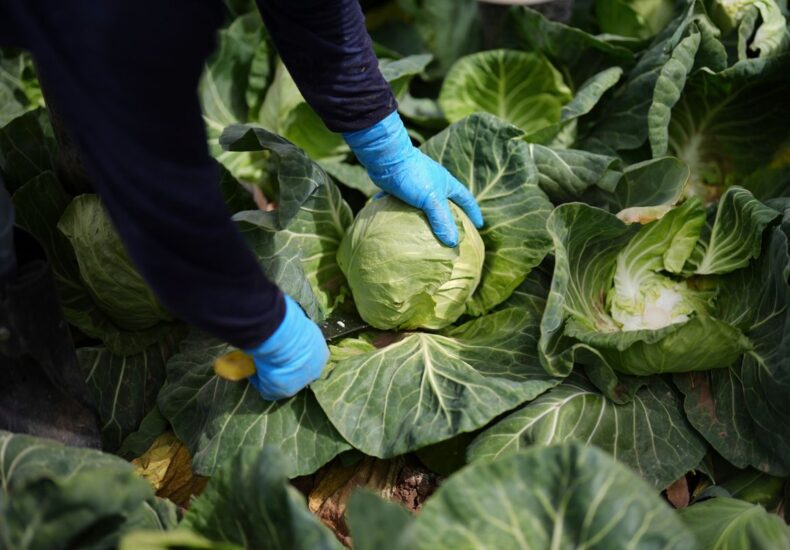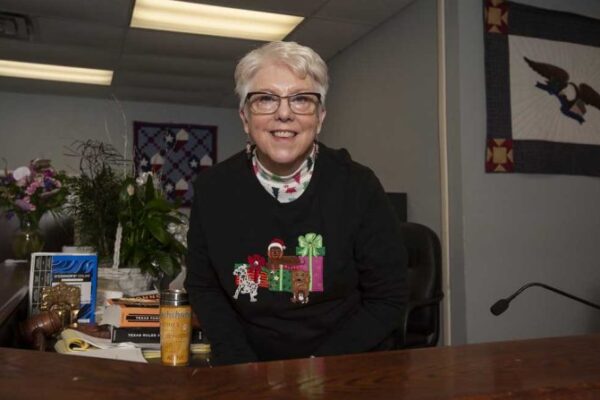
A recipe for avoiding 15 million deaths a year and climate disaster is fixing food, scientists say
About 15 million deaths could be avoided each year, and agricultural emissions could drop by 15% if people worldwide shift to healthier, predominantly plant-based diets, according to the EAT-Lancet Commission. This commission brought together scientists from around the globe to review the latest data on the role of food in human health, climate change, biodiversity, and the working and living conditions of people involved in the food system.
### Key Findings
Their conclusion is clear: without substantial changes to the food system, the worst effects of climate change will be unavoidable, even if humanity successfully switches to cleaner energy sources. “If we do not transition away from the unsustainable food path we’re on today, we will fail on the climate agenda. We will fail on the biodiversity agenda. We will fail on food security. We will fail on so many pathways,” said study co-author Johan Rockström, who leads the Potsdam Institute for Climate Impact Research.
### The Importance of Food System Reform
The commission’s first report in 2019 was regarded as a monumental landmark study for its willingness to take food system reform seriously while integrating concerns about both human and environmental health. Adam Shriver, director of wellness and nutrition at the Harkin Institute for Public Policy and Citizen Engagement, praised the report for its comprehensive approach.
### Highlights from the Latest Report
– **A Planetary Health Diet Could Save Lives:** The first EAT-Lancet report proposed a planetary health diet centered on grains, fruits, vegetables, nuts, and legumes. The updated guidelines maintain that to improve health while reducing global warming, people should aim for one serving each of animal protein and dairy per day, while limiting red meat consumption to about once a week.
– **Focus on Developed Nations:** This recommendation is especially relevant for people in developed countries, who disproportionately contribute to climate change and generally have more choices regarding their diets.
– **Alignment of Human and Planetary Health:** The dietary recommendations were primarily based on data about health risks from preventable diseases like Type 2 diabetes and cardiovascular disease—not solely on environmental criteria. The researchers emphasize that human and planetary health happen to be in alignment.
Rockström notes, “It may seem boring for an analysis to reach the same conclusion six years later, but I find this reassuring because food science is a rapidly moving field with many big studies and improving analytics.” He also highlights the personal nature of food choices, saying, “Food is one of the most deeply personal choices a person can make, and the health component touches everyone’s heart.”
### Small Changes Can Make a Big Difference
While addressing global challenges is complex, what individuals can do is relatively straightforward, such as reducing meat consumption without eliminating it altogether. “People associate what they eat with identity, and strict diets can scare people off, but even small changes help,” said Emily Cassidy, a research associate with climate science nonprofit Project Drawdown, who was not involved in the research.
### Food Choices and Planetary Thresholds
The researchers looked beyond climate change and greenhouse gas emissions, examining biodiversity, land use, water quality, and agricultural pollution. They concluded that food systems are the biggest culprit pushing Earth toward critical thresholds for a livable planet.
Kathleen Merrigan, a professor of food systems at Arizona State University not involved with the research, described the report as “super comprehensive in its scope.” She noted that it delves into how farming and labor practices, consumption habits, and other aspects of food production are interconnected and could be changed.
“It’s like we’ve had this slow awakening to the role of food in discussions about planetary existence,” Merrigan said.
### Reducing Emissions by Changing Diets
Changing diets worldwide alone could lead to a 15% reduction in greenhouse gas emissions from agriculture, primarily because meat production—especially red meat—releases a significant amount of planet-warming gases.
The report notes that increased crop productivity, reductions in food waste, and other improvements could increase this reduction to 20%. Cassidy emphasized that if populations in high- and middle-income countries limited beef and lamb consumption to about one serving a week, as recommended by the latest EAT-Lancet report, they could reduce emissions equal to Russia’s annual total emissions.
### Justice and Equity in the Food System
Meanwhile, the report highlights that nearly half the world’s population is being denied adequate food, a healthy environment, or decent work within the food system. Specific vulnerable groups include ethnic minorities, Indigenous peoples, women and children, and people living in conflict zones.
### Looking Ahead to Climate Policy
With United Nations climate talks scheduled for November, Rockström and other researchers hope that world leaders will integrate scientific perspectives about the food system into their national policies.
“To do otherwise takes us in a direction that makes us more and more fragile,” Rockström said. “I mean both in terms of supply of food, but also in terms of health and in terms of stability of our environments. And this is a recipe to make societies weaker and weaker.”
—
*Reporting by Melina Walling*
*The Associated Press’ climate and environmental coverage receives financial support from multiple private foundations. AP is solely responsible for all content. Find AP’s standards for working with philanthropies, a list of supporters, and funded coverage areas at AP.org.*
https://mymotherlode.com/news/national/10024683/a-recipe-for-avoiding-15-million-deaths-a-year-and-climate-disaster-is-fixing-food-scientists-say.html
You may also like
相关资源
You may be interested
Study: reading can save your life
Avid readers may feel there’s nothing better than diving into...
Why some adults never want to have sex? Science decoded
**Life Without Sex: Insights from a Landmark Study on Lifelong...
5 ways to add celery leaves to your diet
**5 Ways to Add Celery Leaves to Your Diet** *By...
 The New York Times
The New York Times
- ‘Stand Up’: With One Maneuver, Trump Tries to Box In Democrats 2026 年 2 月 25 日 Shawn McCreesh
- Jimmy Kimmel Goes Live After a Super Long State of the Union 2026 年 2 月 25 日 Trish Bendix
- Abigail Spanberger, in Democratic Response, Asks if Trump Is Working for Americans 2026 年 2 月 25 日 Reid J. Epstein
- No, the Dollar Is Not Dying 2026 年 2 月 25 日 Eswar Prasad
- Leader of Columbia Brain Institute Quits Over Friendship With Epstein 2026 年 2 月 25 日 Sharon Otterman
- Futsal Phenom in Afghanistan Is a Hero the Taliban Didn’t Expect 2026 年 2 月 25 日 Elian Peltier, Yaqoob Akbary and Tomás Munita
- In Windsor, Some See Family Drama in the Andrew Accusations 2026 年 2 月 25 日 Megan Specia and Stephen Castle
- Abu Dhabi’s State Oil Company Looks Beyond Oil 2026 年 2 月 25 日 Stanley Reed and Natalie Naccache
- Pentagon Gives Anthropic an Ultimatum Over the Company’s A.I. Model 2026 年 2 月 25 日 Julian E. Barnes and Sheera Frenkel
- Court Rules Against Justice Dept. Search of Reporter’s Computers 2026 年 2 月 25 日 Erik Wemple



Leave a Reply